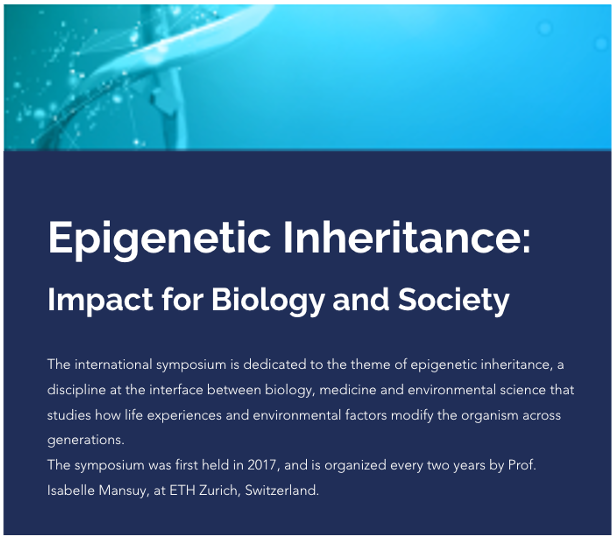Laboratory of Neuroepigenetics
For our new website please click here.
Isabelle Mansuy is Professor in Neuroepigenetics at the Medical Faculty of the University Zürich (UZH), and the Department of Health Science and Technology of the Swiss Federal Institute of Technology Zürich (ETHZ). Her lab is part of the Center for Neuroscience Zürich. She completed a PhD in Developmental Neurobiology at the Friedrich Miescher Institute in Basel, Switzerland and the Université Louis Pasteur Strasbourg, France, then a postdoctoral training in the lab of Eric Kandel at the Center for Learning and Memory at Columbia University in New York. She was appointed Assistant Professor in Neurobiology at the ETHZ in Dec 1998, then Associate Professor in Molecular Cognition at UZH and ETHZ in 2005 and Full Professor in Neuroepigenetics in 2013.
The Mansuy Lab examines the epigenetics of complex brain functions in mammals, particularly the mechanisms of inheritance of acquired traits across generations. The lab studies the mechanisms by which behavioral and physiological traits can be modified by life experiences in childhood and are passed to descendants via the germline. The goal is to determine the molecular and cellular processes underlying the influence of adverse life events on mental and physical health and their link with psychiatric and metabolic disorders in exposed parents and their descendants. It uses animal models and cellular systems to study the involvement of non-coding RNAs, epigenetic factors and chromatin remodeling in the brain and germline, in the expression and transmission of environmentally-induced phenotypes. The work demonstrated that early adversity in mice induces behavioural and metabolic alterations that are transmitted across up to 4 generations through the germline and is currently working on identifying the causative factors. This research is conceptually and technically original, and the Mansuy Lab is a pioneer in the field of transgenerational epigenetic inheritance, a discipline at the forefront of a paradigm shift in genetics. The work is pluridisciplinary and combines environmentally- and genetically-modified animal models, -omics technologies, molecular and cell biology, epigenetic methods, behavioral testing and bioinformatics. The lab is also conducting collaborative studies in trauma patients with clinicians in Europe and South Asia to assess the relevance of its findings for humans.
Previous work in the Mansuy Lab also examined the epigenetic basis of cognitive functions and discovered the existence of molecules of forgetting. It identified the Ser/Thr protein phosphatases calcineurin and PP1 as suppressors of memory and their role in the epigenetic control of memory formation and synaptic plasticity in the adult brain. It also demonstrated their implication in aging-related cognitive decline, Alzheimer’s disease and neurodegeneration.
Isabelle Mansuy is member of the Swiss Academy of Medical Science, the European Academy of Sciences (EURASC) and EMBO, and was elected Knight of the Legion of Honour in France in 2016 and Chevalier dans l’Ordre National du Mérite in 2011. She authored many reviews and books in the field of neuroepigenetics and molecular cognition. Wikipedia







